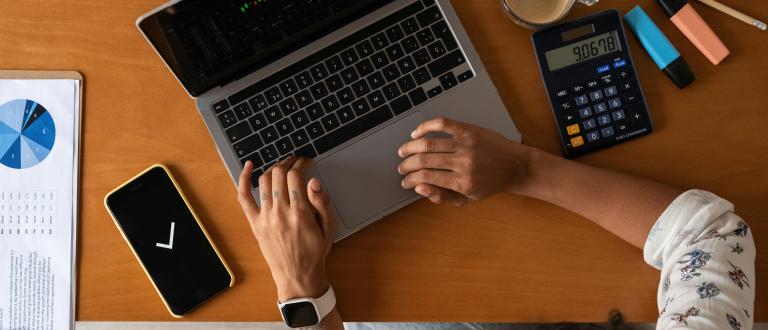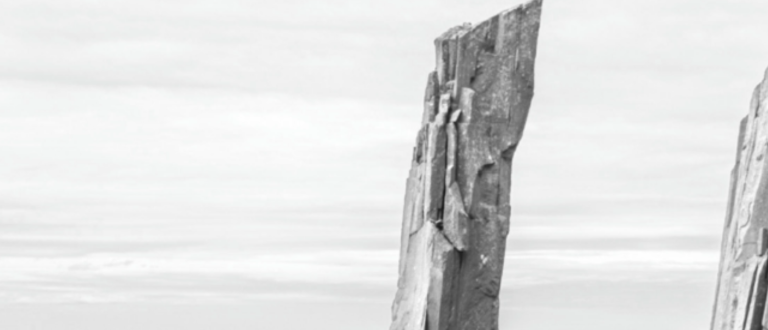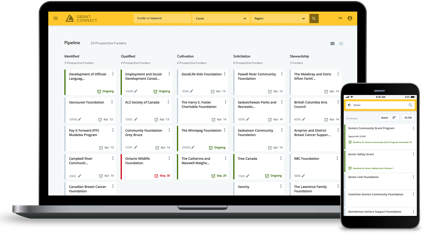As fundraisers, we are on the frontlines of securing resources to keep our causes alive. Through this pandemic, our sector’s critical role in keeping our communities together, especially for the people and places hit hardest by COVID-19, has never been more important. From food banks and shelters to hospital care and friendly calls to elderly members of our society, we’re experiencing a 40% spike in demand for social and healthcare services. We’re up every night worried about how we’ll keep our doors open with a sharp decline in fundraising revenue due to the pandemic. It’s a sector that does so much for our communities, but one that isn’t without sore truths.
“Lipstick makes you a better fundraiser.”
“You should’ve put on a skirt.”
“Yeah I know, that donor can be a bit touchy like that.”
Starting my career as a young, Asian immigrant female fundraiser, I was meticulously observing and learning from seasoned fundraisers around me. I dressed like them. I wore heels like them. I saved my pay cheques to buy purses like theirs. I put on lipstick thinking it was going to give me superpowers as they said. I quickly learned to talk the “cottage talk” with donors while I had never once been to Muskoka. I laughed along when inappropriate ageist jokes were exchanged during a donor meeting, and when a donor did a “Japanese bow” to me. I thought donors were never to be questioned or challenged, even when their hand may have stayed on my shoulder a little too long. While my outer shell was becoming pretty and polished, I couldn’t shake off the feeling that my outside didn’t match my inside.
I began to look at what was causing my internal turmoil. I’d been spending my energy trying so hard to look and act like the “ideal” fundraiser by suppressing what didn’t feel right, telling myself it’s a learning curve and carefully covering up what made me “special.” I snuck out when pop-culture references that I didn’t grow up with were made to avoid feeling excluded. Instead, I excluded myself. I wanted to be treated like the rest, not as a token young Asian immigrant woman. When I looked up, I saw myself drowning and struggling to fit into a philanthropic world where only a few people experienced the world the way I did.
Growing up in Asia, humility and modesty were values I carried in my heart. Canada taught me the opposite: be bold and speak up to be heard in the workplace. It took me a long time to shift that mindset and push myself out of what felt natural to me. I still remember the days when my teeth would start chattering at the thought of raising my hand to ask a question in a team meeting.
“Maybe try using ‘maybe,’ ‘I don’t know,’ and ‘sorry’ more”
“I think you should settle in your position”
Over the years, I attended Toastmasters and pushed myself to speak up, to add value and be heard. I embraced what made me different and unique as my strength. I was slowly but surely finding my voice and my place in the world of philanthropy. Once I started putting my authentic self out there, I felt more whole and confident. I felt exhilarated when my ideas were heard, but it didn’t come without challenges. I sometimes faced silence, bullying, and “coaching” on humility. Perhaps I was no longer the stereotypical quiet Asian girl society expected me to be. Do we ask men to check their humility when they raise their voices in meetings?
In ONN’s Women’s Voices report, a survey respondent shared a sentiment often experienced by many female colleagues: “I discovered I needed to be more assertive with my board, but then I was getting criticized for being ‘too rude.’”
Young racialized female fundraisers often hit invisible walls built by leaders who feel uncomfortable with new voices that may rock the boat – the system that feeds us but painfully perpetuates skewed power dynamics, and makes the rich and powerful “heroes” of our work in the name of philanthropy and donor stewardship.
Fundraisers are the stewards of gifts from a large concentration of wealth accumulated through years of colonialism, slavery, and genocide. In the name of charity, we have accepted donations that derive from the exploitation of land, people, and systems. Yet, we continue to pump out the "us versus them" narrative, and paint donors as saviours and beneficiaries — often women and racialized people — as helpless and needy. We have, knowingly and unknowingly, turned a blind eye to problematic and questionable practices so as to finish our annual race of meeting revenue goals instead of making real systemic change. I look around and can't help but notice that those at the decision-making tables don't look like me or experience the world the way I do. How sustainable is this system, and is it time that we share uncomfortable but important truths to propel us to do better as we recover from this once-in-a-lifetime pandemic?
The Decent Work report from ONN highlighted that the nonprofit sector is women-majority (80%) but not always women-led. Women are underrepresented in senior leadership positions. Immigrant and racialized women are more likely to be frontline staff rather than senior leadership. Women experience a gender wage gap as they earn less than men, especially in senior leadership positions, with limited access to a pension plan and maternity top-ups.
Leaders, often well-meaning, don’t leave a lot of space for young racialized female fundraisers to dream big, allowing dreams to only incubate within the comfort zone they breathe in. Under the guise of career advice, we are invited to more women empowerment panels and Diversity & Inclusion committees instead of leadership positions. We need our leaders to recognize and maximize the tremendous assets that we — smart, strategic, and ambitious young racialized female fundraisers — bring to the table that have been systemically minimized. We need our leaders to give up their seats and shift power to our colleagues who have been historically silenced, neglected, and overlooked.
As I’ve expanded my social and professional networks, I’ve found myself surrounded by fundraisers who are so amazing at their work and don’t care to impress donors with their looks because their insides beam with love and deep care for our community—and that’s enough. I began to invest my time in deepening relationships with mentors and peers who inspire me to be authentic and safeguard what makes me—me. I began to speak up for what didn’t feel right and started trusting my gut because often there was a reason to believe so.
As we are living through record highs of the pandemic and feeling the undeniable pressure to keep our doors open to serve those most vulnerable among us, I hope you are, first and foremost, well cared for as much as you care for others. And remember:
What you have in you is more than enough. Who you are is enough. Believe it when something doesn’t feel right and speak up. Speak up for yourself and for others whose voices are being silenced or uninvited. In the words of Micky ScottBey Jones, “Together we will create brave space. Because there is no such thing as a ‘safe space’ — we exist in the real world … We amplify voices that fight to be heard elsewhere, we call each other to more truth and love.”
Our role as fundraisers comes with tremendous accountability and responsibility for the communities we serve, so let’s tell the story that is true not hyperbolic, asset-based not deficit-based, and with curiosity over voyeurism, empathy over pity. Let’s be more than the “ideal” fundraiser. Let’s say no to donations that cement elitism and deepen systemic inequities – even if that means we may not meet our revenue goal – because instead we will truly deliver on our mission. Let’s repair and rebuild philanthropy. An equitable recovery from this pandemic requires us to ask brave questions, confront uncomfortable truths, and make bold changes.
With hope,
Nayeon
Guest contributions represent the personal opinions and insights of the authors and may not reflect the views or opinions of Imagine Canada.
Nayeon [na-yeon, she/her] is an Asian immigrant woman who is grateful to call the traditional Indigenous land of Toronto home. With a decade of experience in the charitable sector, she brings trust-based relationship building, curiosity, and entrepreneurial spirit to fighting poverty in Toronto. You’ll find Nayeon advocating for justice and equity for youth, Indigenous women, and newcomers to Canada through her community work. She currently serves as Vice Chair on the Board of the Regent Park Film Festival and as a resident co-chair for Regent Park’s Social Development Plan. Nayeon loves exploring the world, watching soul-enriching documentaries, and stumbling across unexpected local farmers markets.




